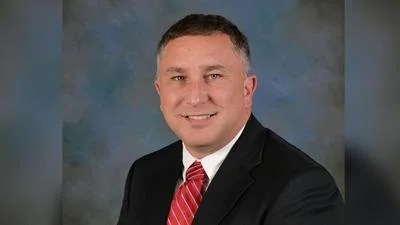Eddy F. Borrayo, President/CEO of Duane Dean Behavioral Health Center | duanedean.org
Eddy F. Borrayo, President/CEO of Duane Dean Behavioral Health Center | duanedean.org
The listed appropriations included two grants of $250,000 and $175,000, plus an additional grant of $25,000, all designated for programs or services funded by the State of Illinois.
These appropriations represent state-level funding authorized by lawmakers, reflecting what was approved in the budget, not necessarily disbursed. The funds cover only State of Illinois support and exclude federal, local, or other public sources.
Founded in 1972 by M. Duane Dean, Duane Dean Behavioral Health Center states that its mission is: “Duane Dean Behavioral Health provides comprehensive services through integrated programs, including prevention and educational resources for substance use/abuse and the disease of addiction.”
You can learn more about the organization at its website.
In its most recent IRS Form 990 filing filing for tax year 2024, the organization reported $2,365,080 in total revenue. Of that, $999,372 came from government grants including federal, state, or local sources, making up 42.3% of total revenue.
The nonprofit listed $1,215,210 in contributions overall. It also reported $215,842 categorized under other contributions, which may include restricted donations, pledges, or bequests.
At the beginning of 2024, Duane Dean Behavioral Health Center had $1,768,580 in assets. By the end of 2024, that figure had changed to $1,788,040, indicating a 1.1% growth in overall holdings.
According to its filing, public funding to Duane Dean Behavioral Health Center increased in the last year. The group received $792,061 in government grants in 2023, compared to $999,372 in 2024—an increase of 26.2% year-over-year.
However, a Chicago City Wire analysis found that IRS filings frequently contain discrepancies when compared with publicly disclosed government grant reports and budgets.
Duane Dean Behavioral Health Center is one of hundreds of nonprofits across Illinois that receive substantial support from state taxpayers while also fundraising privately.
In 2025, Illinois lawmakers introduced House Bill 1266, also known as the Department of Government Efficiency (DOGE) Act. The proposal would create a new oversight body within the Office of the Auditor General tasked with identifying cost-saving measures, reviewing agency performance, and advising on audit priorities. If passed, DOGE could bring additional scrutiny and performance evaluation to taxpayer-funded organizations.
According to ProPublica, Illinois has more than 78,000 active tax-exempt organizations, including nearly 60,000 classified as charitable nonprofits. In their most recent IRS filings, these groups reported a combined revenue exceeding $156 billion.
| Fiscal Year | Total Grants/Contracts | Total Taxpayer $$ |
|---|---|---|
| 2024 | 3 | $450,000 |
| Term | Name | Title |
|---|---|---|
| 2024-2024 | Eddy Borrayo | President Ceo |
| 2024-2024 | George H Ryan Sr | Chair |
| 2024-2024 | Josephine Pacheco | Director |
| 2024-2024 | Kevin Pinski | Director |
| 2024-2024 | Nicolas Africano | Treasurer |
| 2024-2024 | Robert J Gessner | Secretary |
| 2024-2024 | Tyler D Tall | Vice Chair |






 Alerts Sign-up
Alerts Sign-up